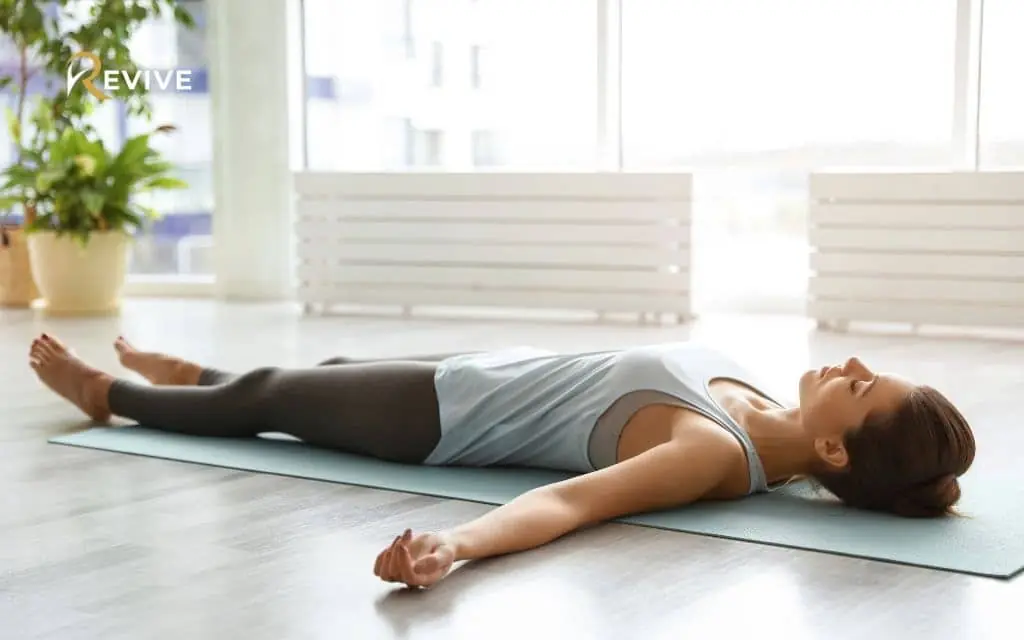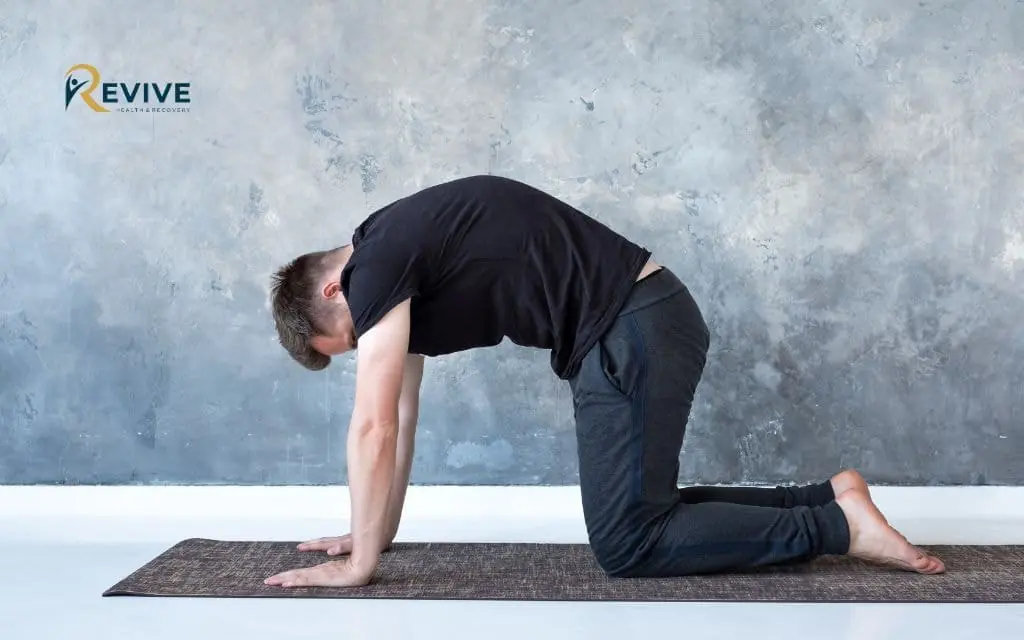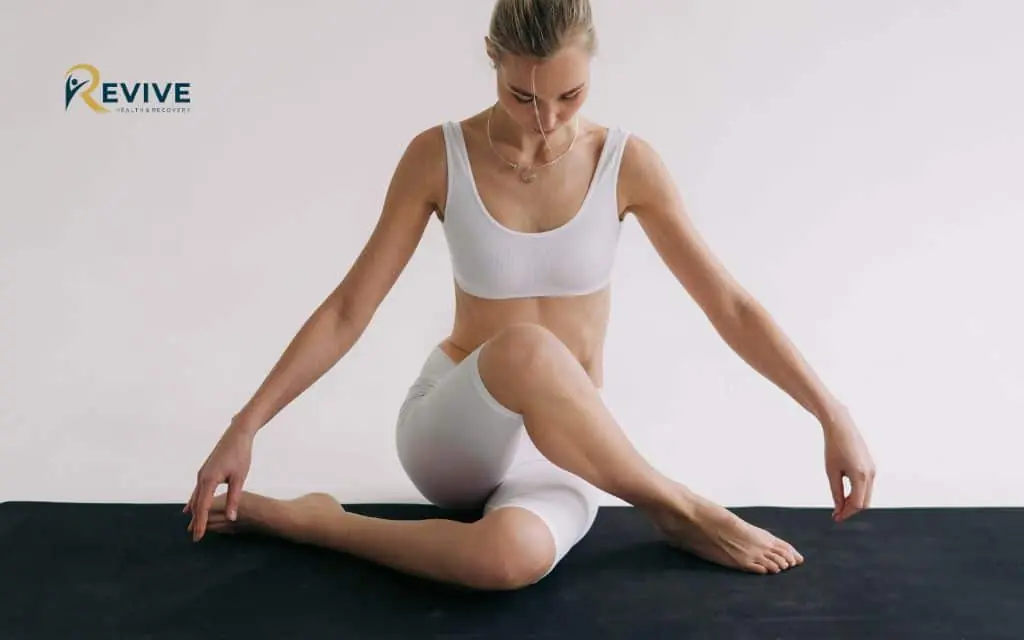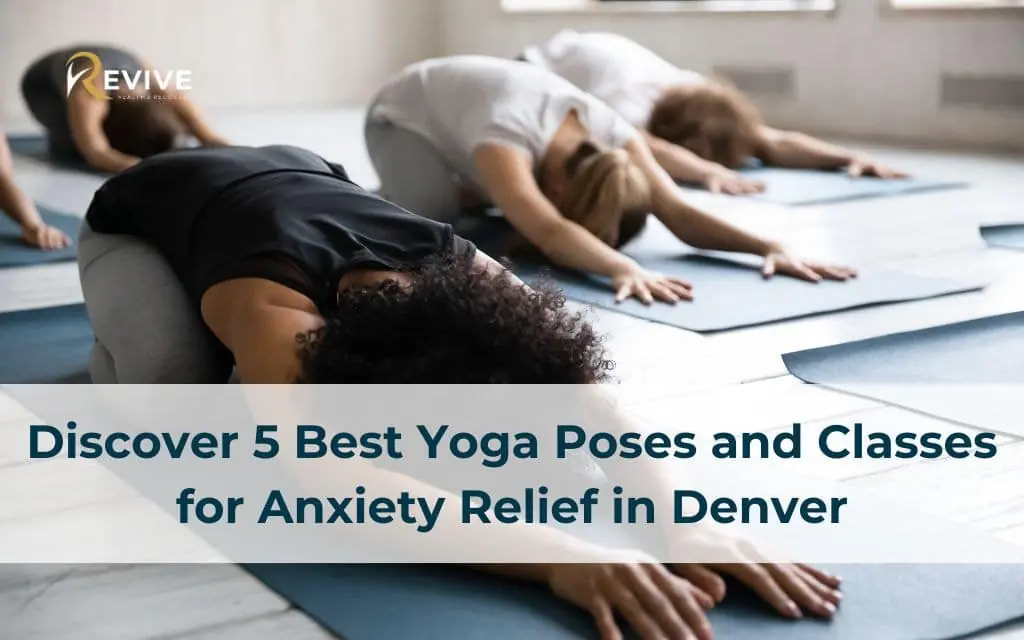Living with anxiety can feel overwhelming. The persistent worry, restlessness, and fatigue can impact every aspect of daily life. For many Denver residents, yoga offers a powerful, evidence-based approach to managing these symptoms naturally. This ancient practice has gained recognition in modern clinical settings for its ability to reduce anxiety while promoting overall wellbeing.
This guide explores effective Yoga poses for anxiety treatment, local classes, and therapeutic options specifically for Denver residents seeking anxiety relief. Whether you’re new to yoga or looking to deepen your practice, you’ll discover how yoga can complement professional treatment and provide lasting tools for anxiety management.
Why Yoga Works for Anxiety Relief
The Science Behind Yoga and Anxiety
Yoga directly influences your body’s stress response system. When practiced regularly, yoga activates the parasympathetic nervous system – your body’s “rest and digest” mode – which counteracts the fight-or-flight response triggered by anxiety. This activation leads to reduced cortisol levels, the primary stress hormone that fuels anxiety symptoms.
Research from the Journal of Alternative and Complementary Medicine found that yoga practitioners experienced significant reductions in anxiety scores after just eight weeks of regular practice. A Harvard Medical School study further demonstrated that yoga can modify stress response pathways, making practitioners more resilient to anxiety triggers over time.
Unique Benefits of Yoga for Anxiety
Trauma-informed yoga offers specialized approaches for those whose anxiety stems from traumatic experiences. Unlike traditional yoga classes, trauma-informed sessions prioritize choice, empowerment, and safety, allowing practitioners to reconnect with their bodies at their own pace.

Yoga Nidra, often called “yogic sleep,” provides profound relaxation while maintaining consciousness. This practice has shown remarkable effectiveness for anxiety, with studies reporting anxiety reduction of up to 50% after regular sessions. Somatic movement techniques integrated into yoga help release tension stored in the body’s tissues, addressing the physical manifestations of anxiety that often go untreated in conventional approaches.
Top Yoga Poses for Anxiety Treatment
1. Child’s Pose (Balasana)
Instructions:
- Kneel on your mat with big toes touching and knees separated
- Sit back on your heels
- Fold forward, extending arms forward or resting them alongside your body
- Rest your forehead on the mat and breathe deeply for 1-5 minutes
Child’s Pose grounds your energy and creates a sense of safety. The gentle compression of abdominal organs promotes parasympathetic response, calming your system. Practice this pose at home whenever anxiety surfaces, even for just 30 seconds to reset your nervous system.
2. Legs-Up-the-Wall Pose (Viparita Karani)
Instructions:
- Sit with one hip against a wall
- Swing your legs up as you lower your back to the floor
- Position your sitting bones close to the wall
- Rest with arms alongside your body, palms up
- Hold for 5-15 minutes, breathing deeply
This accessible inversion calms your nervous system by gently increasing blood flow to your brain while reducing pressure in your legs. For those who experience anxiety with racing thoughts at bedtime, this pose offers immediate relief. Modify by placing a folded blanket under your lower back for additional support.
3. Cat-Cow Pose
Instructions:
- Begin on hands and knees in tabletop position
- Inhale, drop your belly while lifting chest and gaze (Cow)
- Exhale, round your spine while tucking chin to chest (Cat)
- Continue flowing between positions for 1-3 minutes
Cat-Cow synchronizes breath with movement, establishing a rhythm that regulates your nervous system. This gentle flow massages your spine and abdominal organs, releasing physical tension that accompanies anxiety. The movement encourages deep, diaphragmatic breathing—a natural anxiety antidote.
4. Corpse Pose (Savasana)
Instructions:
- Lie flat on your back with legs extended
- Allow feet to fall open naturally
- Place arms alongside body, palms facing up
- Close your eyes and systematically relax each body part
- Remain for 5-10 minutes
Corpse Pose creates space for complete relaxation, teaching your body how to release anxiety-induced tension. Many find this seemingly simple pose challenging because it requires surrendering control—exactly what anxiety makes difficult. For enhanced benefits, try a guided body scan meditation while in this position.

5. Seated Forward Fold
Instructions:
- Sit with legs extended forward
- Inhale, lengthen your spine
- Exhale, hinge at hips to fold forward
- Hold onto legs wherever is comfortable
- Maintain for 1-3 minutes with gentle breathing
This pose calms the mind by gently stretching the spine and stimulating the parasympathetic nervous system. The mild compression of abdominal organs promotes relaxation, and the inward focus quiets mental chatter. If hamstring tightness creates discomfort, bend your knees slightly or sit on a folded blanket.
Yoga Sequences for Anxiety Relief
Morning Sequence to Start the Day Calmly
Start with 5 minutes of Cat-Cow to warm up the spine and connect with your breath. Move to Child’s Pose for 1-2 minutes to center yourself, then finish with Seated Forward Fold for 2-3 minutes. This 10-minute sequence reduces morning anxiety and establishes a focused mindset for the day ahead. Practicing before checking emails or news helps maintain this calm state.
Many Denver residents find that this sequence counteracts the heightened morning cortisol that triggers anxiety symptoms. The combination of gentle movement and stillness creates balance in both body and mind.
Evening Sequence to Unwind
Begin with Legs-Up-the-Wall pose for 10 minutes to release the day’s tension. Follow with Corpse Pose for 5-10 minutes, allowing complete relaxation. This sequence signals to your body that it’s time to transition from the day’s activities to rest, promoting deeper sleep and reducing nighttime anxiety.
The altitude in Denver can affect sleep quality for many residents, making this evening sequence particularly beneficial for those struggling with anxiety-related insomnia.
Finding the Right Yoga Classes and Instructors in Denver
Top Yoga Studios for Anxiety Treatment in Denver
Several Denver yoga studios offer specialized classes for anxiety relief:
- The River Yoga: Offers trauma-informed classes with highly trained instructors
- Samadhi Yoga: Provides restorative yoga specifically designed for stress and anxiety
- Kindness Yoga: Features numerous gentle classes appropriate for anxiety management
- Yoga on 6th: Specializes in therapeutic yoga with smaller class sizes for personalized attention
- Whole Yoga: Offers classes focused on breath work and relaxation techniques
Many studios offer free or discounted first classes, allowing you to find the right environment for your needs.
Certified Yoga Instructors Specializing in Anxiety Relief
When searching for instructors in Denver, look for Yoga Alliance certification, which ensures basic training standards. For anxiety-specific instruction, seek teachers with additional certifications in trauma-informed yoga or yoga therapy.
Denver has a growing community of instructors with mental health backgrounds, combining traditional yoga knowledge with psychological understanding. These specialized teachers can provide modifications and approaches specifically tailored to anxiety symptoms.
Local Styles to Explore: B.K.S. Iyengar & Kripalu-Based Yoga
B.K.S. Iyengar yoga, available at several Denver studios, emphasizes precise alignment and often uses props, making it accessible for beginners. The methodical approach helps anxious minds focus on physical details rather than racing thoughts.
Kripalu Center for Yoga and Health has influenced many Denver teachers. This compassionate, meditative approach encourages self-observation without judgment—particularly beneficial for those with anxiety who often experience harsh self-criticism. Kripalu’s emphasis on “being present” rather than “doing perfectly” creates a safe space for anxiety management.
Practicing Yoga at High Altitude
Denver’s elevation (5,280 feet) affects yoga practice. The reduced oxygen can initially intensify anxiety symptoms during physical exertion. Newcomers to Denver should:
- Hydrate more than usual before and after practice
- Begin with gentler classes until acclimated
- Focus on breath awareness
- Modify poses as needed
The upside? The increased mindfulness required for high-altitude practice can actually enhance yoga’s anxiety-reducing benefits once you’ve adjusted.
The Broader Benefits of Yoga for Mental Health
Yoga for Stress Relief
Beyond anxiety management, yoga offers powerful stress reduction tools. Slow-flow practices decrease cortisol levels while increasing GABA, a neurotransmitter that promotes calmness. The emphasis on present-moment awareness interrupts the stress cycle that fuels anxiety.
Denver’s competitive work environment can create chronic stress. Regular yoga practice builds resilience to workplace pressures while improving focus and decision-making—all of which help manage anxiety triggers before they escalate.
Yoga and Overall Mental Well-being
Regular practice contributes to improved mood regulation, with studies showing benefits comparable to antidepressants for some individuals. Yoga builds psychological resilience by teaching practitioners to observe uncomfortable sensations without reactivity.
The communal aspect of studio classes addresses the isolation that often accompanies anxiety disorders. Denver’s yoga community provides connection and support—essential components for long-term mental health.

Relaxation Techniques Through Yoga
Breathing Exercises (Pranayama)
Nadi Shodhana (Alternate Nostril Breathing) effectively reduces anxiety in minutes:
- Close your right nostril with your thumb
- Inhale through your left nostril
- Close left nostril with ring finger, release thumb
- Exhale through right nostril
- Repeat for 3-5 minutes
This technique balances the nervous system and creates immediate calm during anxiety episodes. The focused attention required disrupts anxious thought patterns, while the regulated breath slows heart rate and reduces blood pressure.
Meditation and Mindfulness
Body scan meditation combined with yoga poses enhances anxiety relief:
- In a comfortable position, bring awareness to your feet
- Gradually move attention upward through each body part
- Notice sensations without judgment
- Continue to the crown of your head
This practice develops the observer perspective, helping you recognize anxious thoughts without becoming overwhelmed by them. Regular practice rewires neural pathways that perpetuate anxiety.
What to Expect from Yoga Therapy for Anxiety
Is Yoga Therapy Right for You?
Yoga therapy offers structured, individualized approaches for specific mental health concerns. This specialized treatment works well for:
- Generalized anxiety disorder
- Panic disorder
- Mild to moderate PTSD
- Social anxiety
- Performance anxiety
Unlike group classes, yoga therapy involves assessment, personalized practice development, and progress monitoring—similar to other health interventions.
Cost of Yoga Therapy in Denver
Yoga therapy services in Denver vary widely in terms of pricing structures and options. For specific information about current rates, package options, and potential insurance coverage, contact Revive Health Recovery directly. Their team can provide detailed information about how yoga therapy might be incorporated into your comprehensive treatment plan, along with associated costs.
Many Denver mental health centers now incorporate yoga therapy into treatment plans. Some workplaces offer wellness programs that include yoga therapy coverage, and community studios may provide sliding scale options.
Complementing Yoga with Professional Anxiety Treatment
Combining Yoga and Mental Health Therapy
Research demonstrates that yoga paired with cognitive-behavioral therapy (CBT) produces better outcomes than either approach alone. Yoga provides physiological regulation that enhances receptivity to therapeutic interventions, while therapy offers cognitive tools that complement yoga’s somatic benefits.
The mind-body connection emphasized in yoga supports talk therapy progress by increasing body awareness and emotional recognition. Denver therapists increasingly recommend yoga as a supportive practice between sessions.
Services at Revive Health Recovery
Revive Health Recovery in Denver offers comprehensive anxiety treatment that integrates mindfulness-based approaches with evidence-based therapy. Their intensive outpatient programs incorporate body-centered techniques alongside traditional therapeutic modalities.
Revive’s approach recognizes that anxiety affects both mind and body, requiring intervention at multiple levels. Their personalized treatment plans often include recommendations for complementary practices like yoga to enhance clinical outcomes.
For Denver residents seeking to combine professional treatment with yoga practice, Revive Health Recovery provides the expertise and comprehensive care needed for lasting anxiety relief.
FAQs Yoga poses for anxiety treatment
Can yoga alone treat clinical anxiety?
No, while yoga provides significant benefits, clinical anxiety typically requires comprehensive treatment. Revive Health Recovery recommends yoga as part of an integrated approach that includes professional therapy and, when appropriate, medication.
What’s the best yoga style for anxiety?
Gentle styles like Hatha, Kripalu, and restorative yoga typically work best. Revive Health Recovery can help match you with the appropriate style based on your specific anxiety symptoms and treatment needs.
Are there free yoga classes in Denver?
Yes, check community centers, parks during summer months, and yoga studio introductory offers. Revive Health Recovery can also suggest affordable options that complement your treatment plan.
How long until I see results?
Most people notice initial benefits after 2-4 weeks of consistent practice. Revive Health Recovery’s integrated approach can accelerate this timeline by addressing anxiety from multiple perspectives simultaneously.
What’s the difference between yoga and yoga therapy?
Yoga therapy provides individualized, clinical approaches focused on specific health conditions, while general yoga classes offer broader benefits. Revive Health Recovery can help determine which option best suits your needs.
How often should I practice?
Start with 2-3 times weekly for 20-30 minutes. Revive Health Recovery can help you develop a sustainable practice schedule that works with your treatment plan.
What should I look for in an instructor?
Seek trauma-informed certification, experience with anxiety, and Yoga Alliance registration. Revive Health Recovery maintains relationships with qualified instructors throughout Denver who understand anxiety treatment.
Conclusion
Yoga offers Denver residents accessible, empowering tools for anxiety management. The combination of physical poses, breathing techniques, and mindfulness practices addresses anxiety at its physiological and psychological roots. Whether practiced at home, in studios, or as part of therapy, yoga provides lasting skills for navigating life’s challenges with greater calm.
For optimal results, consider integrating yoga with comprehensive treatment. Revive Health Recovery provides Denver residents with evidence-based anxiety care that acknowledges the mind-body connection fundamental to lasting recovery. Their expertise in mental health and substance use treatment creates the perfect foundation for incorporating yoga into your healing journey.
Take the first step toward comprehensive anxiety relief by exploring both yoga resources and professional support available right here in Denver. Contact Revive Health Recovery today to learn more about their integrative approach to anxiety treatment and how yoga can be part of your personalized recovery plan.



